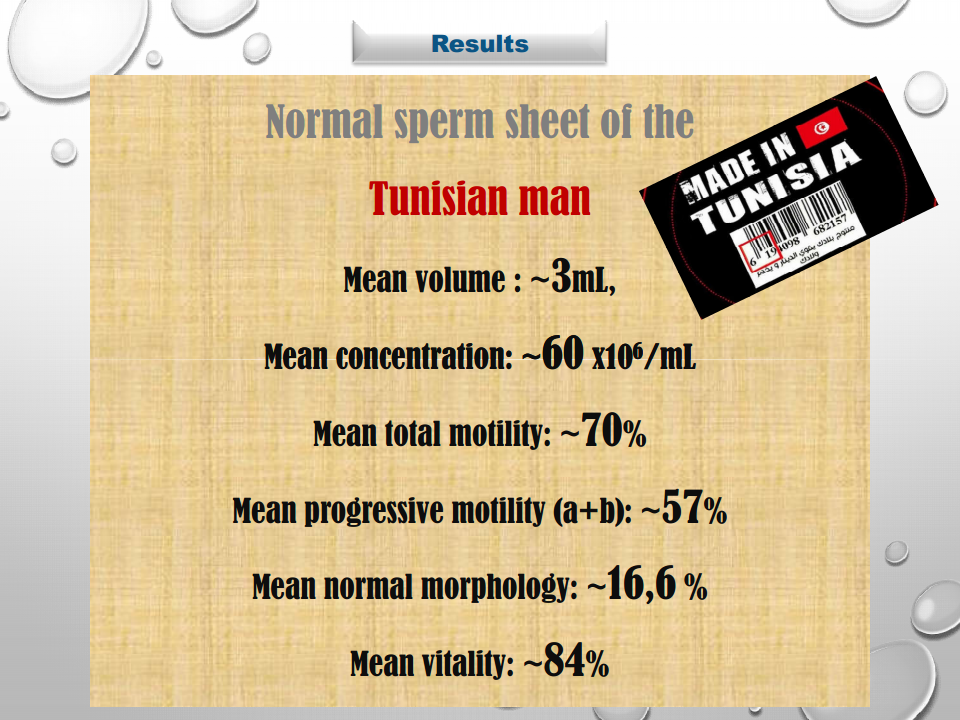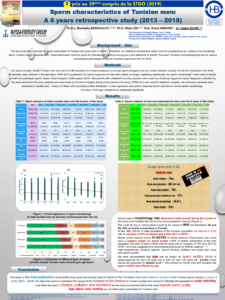At Microptic, we asked some of our clients about their research studies they have performed using our SCA system. In this blog, Dr Hatem Bahri (from Tunisia) introduces one of his most important research, presented at the last congress of the Tunisian Society of Gynecology and Obstetrics and second prize-winner:
Sperm characteristics of Tunisian men: A 6 years restrospective study (2013 – 2018)
Our study, which focused on sperm parameters of Tunisian men, backs to 2009. For this, our statistical retrospective study could be considered as an update of our knowledge about Tunisian sperm characteristics. This information could be useful for reproductive medicine serving as a new reference to identify “the exact” Tunisian normozoospermia and its variated encountered pathologies 2013-2018.
The study included 18.629 Tunisian men who came to HB laboratory of medical analyses to do a spermocytogram for any reason since January 2013 to December 2018. All samples were collected in the laboratory. WHO 2010 parameters for sperm diagnosis with kruger classification for sperm morphology [kruger et al, 1988] were used to identify normal from pathologic sperm. Sperm Class Analyzer CASA system (SCA – Microptic®) was used as a technical support for sperm diagnosis controlled by the same technician for every analysis and supervised by the same biologist during all the period of the study. SPSS 20,0 was used for statistical analysis. Results are expressed in median [min – max] or in Mean ±SD according to their distribution.

Normal sperm morphology rate decreased continuously during the 6 years of the study for total included men or only normozoospermic men. This could be due to various factors such as the impact of Wi-Fi, Broadband 3G and 4G (54% of mobile connections in Tunisia), 68% (49,4% of male population) of Tunisian population used internet in 2018 with an increase of 23% of internet users from 2017 to 2018, mobile phone network (score 51,65 of mobile network infrastructure) also could have an impact on sperm quality (149% of mobile connections of the total population with 60% of active mobile internet users and an increase of 14% from 2017 to 2018). High temperatures, smoking cigarettes, alcohol drinking, pollution and stress also could alter sperm quality. We’ve demonstrated that age have an impact on sperm motility. These results are supported by Shabani et al. who revealed that sperm motility is affected by age.
Conclusion:
This study is the first publication which gives the normal sperm sheet of the Tunisian man and a detailed analysis during six years of study, our data are useful to understand the increase in the number of Tunisian couples who consult for male infertility over these last years.
Lifestyle, pollution and technology are the major causes of sperm quality degrading and age alters only sperm motility.
Dr Hatem Bahri
Medical analyses laboratory, Tunis, Tunisia






Leave A Comment